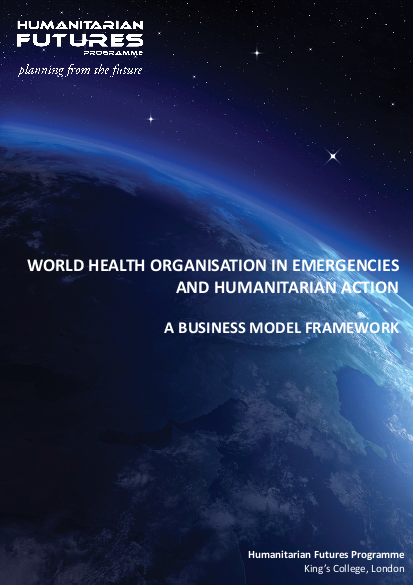
An effective business model depends upon a clear strategy and well defined objectives that are understood and agreed across the institution. It, too, has to reflect a clear sense of the institutional assets that are and should be available to achieve such strategic objectives, and at the same time a general appreciation of how such assets should be best employed – at what levels and by whom. This framework document is intended to explore these issues to determine what will be precisely needed to move towards a business model for WHO that serves the organisation’s purposes now and for a longer-term future.
Since 2005 the World Health Organisation has made steady progress in identifying its comparative advantages and value-added for dealing with health action in crises. In so doing, WHO has established clear objectives for its own work and for its role as health cluster lead, globally and in-country. Its performance indicators are ambitious but precise, and its holistic approach for garnering the competencies of the organisation as a whole to focus on health action in crisis conceptually plausible. Nevertheless, despite this progress, WHO has to test the extent to which it is ready for a sustainable business model against criteria that not only have relevance for the immediate but also for the longer term.